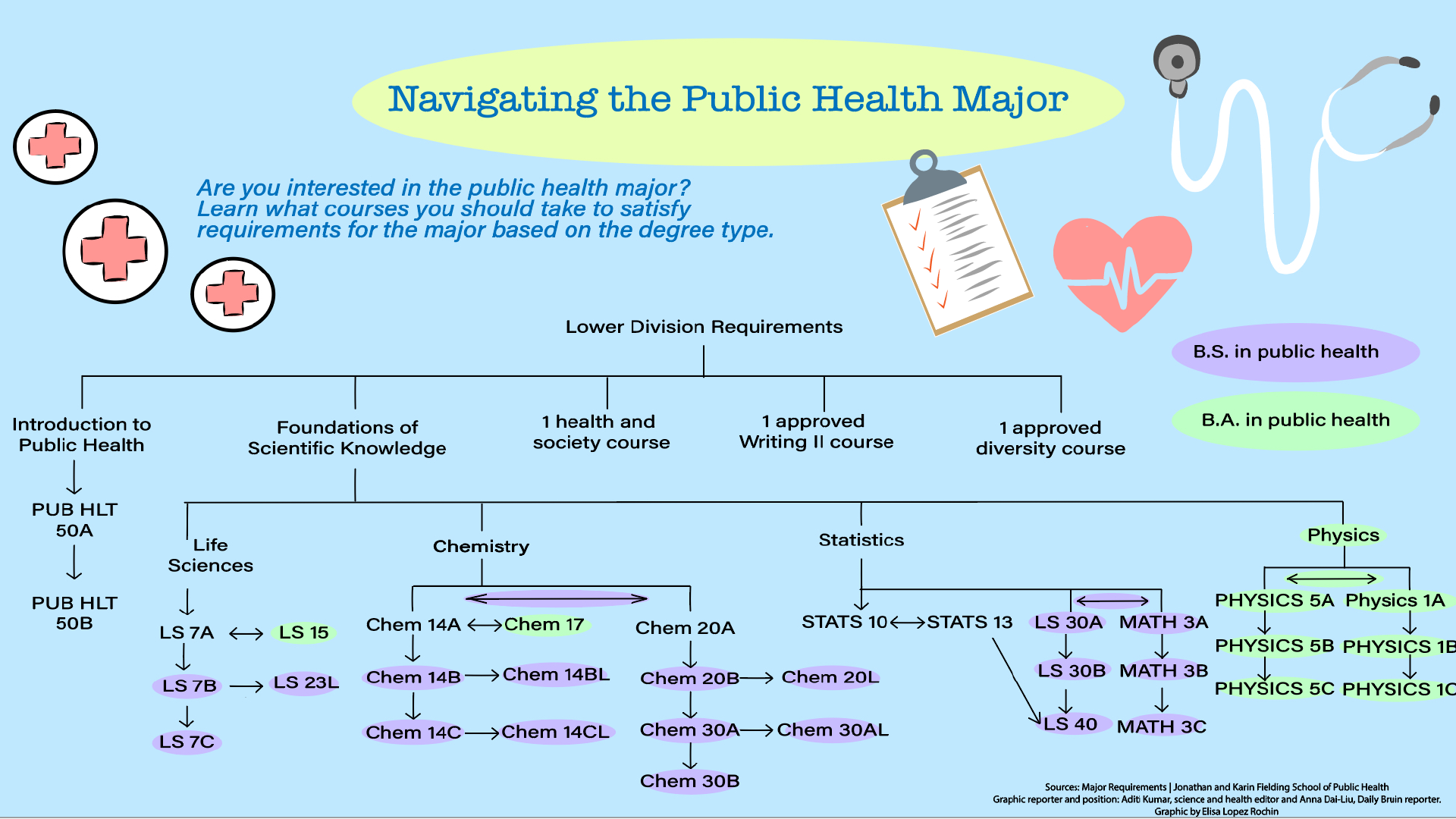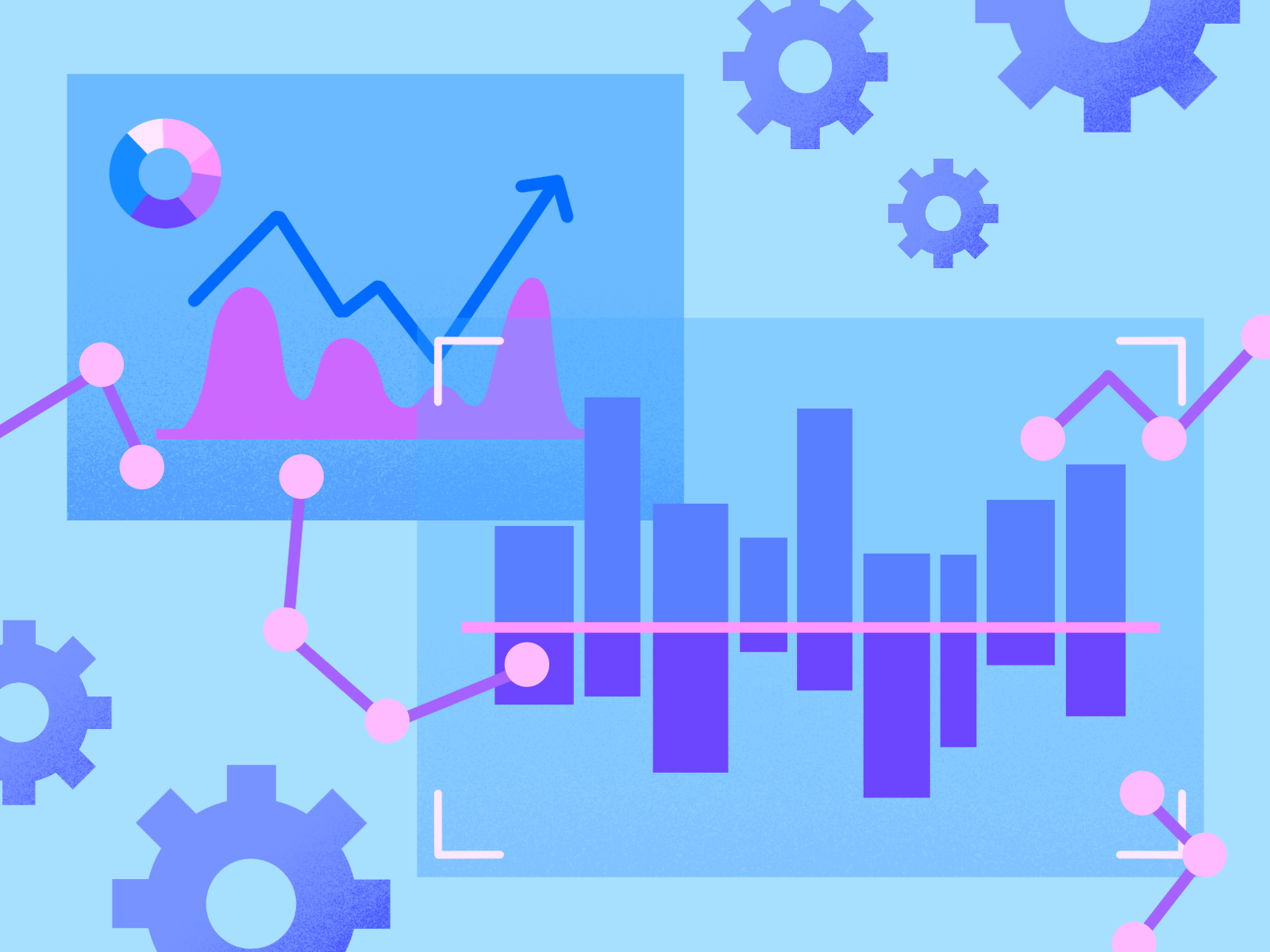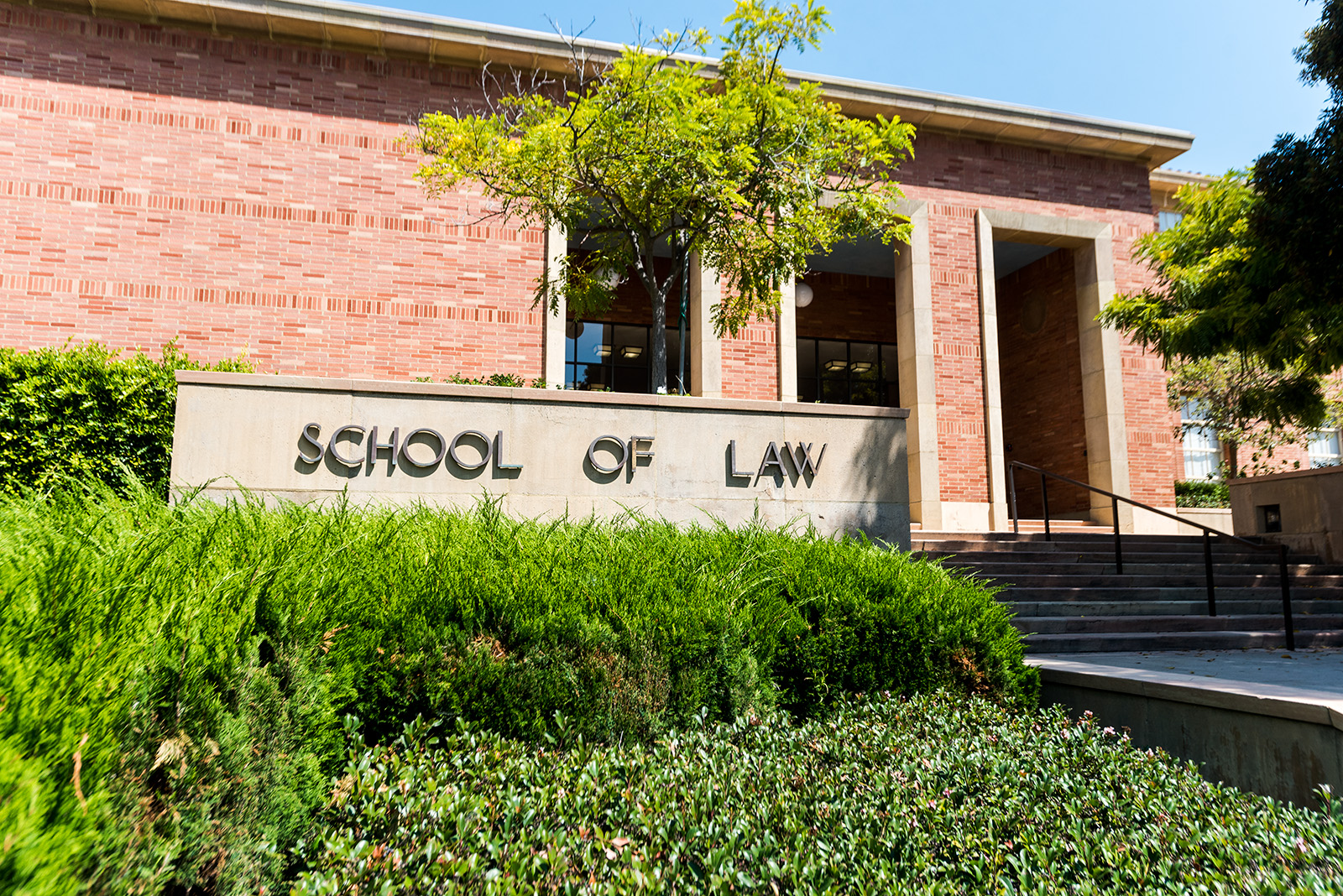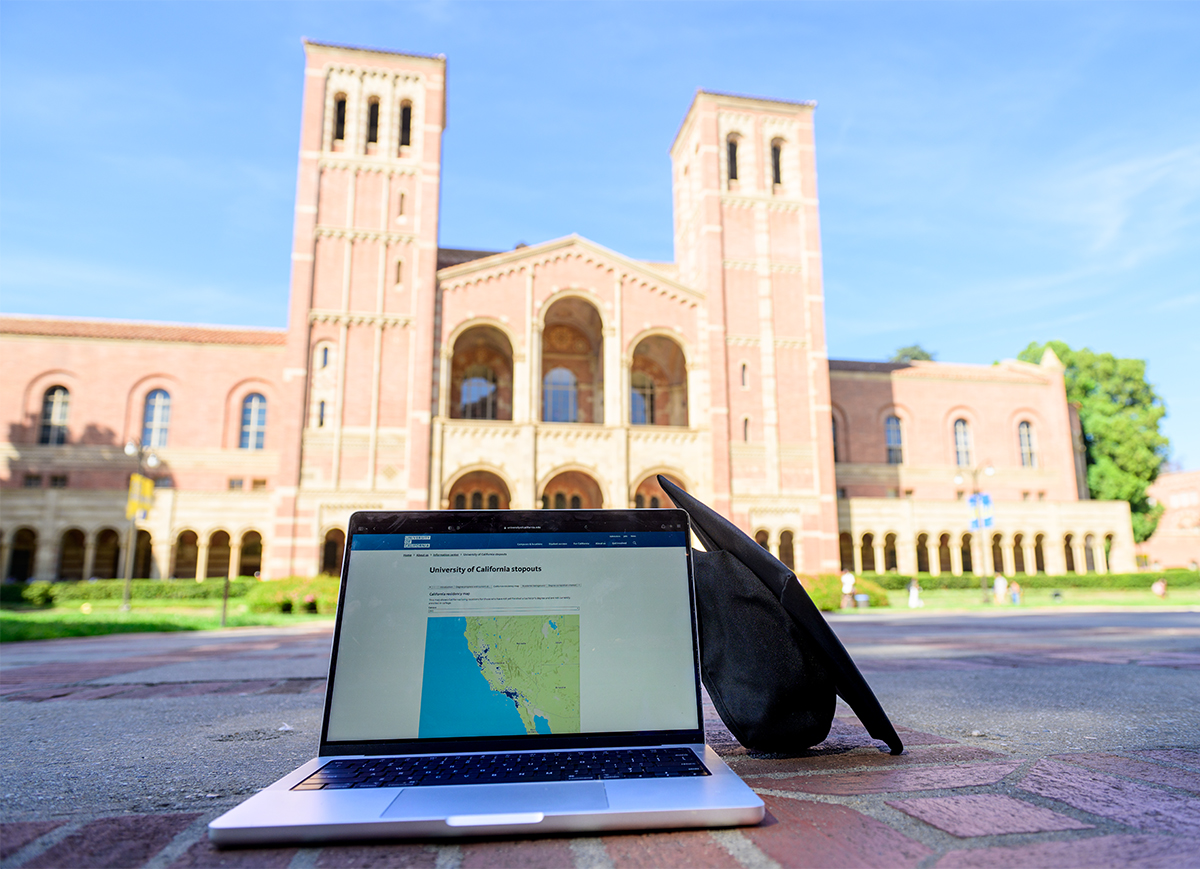School of Public Health announces new master’s degree in data science in health
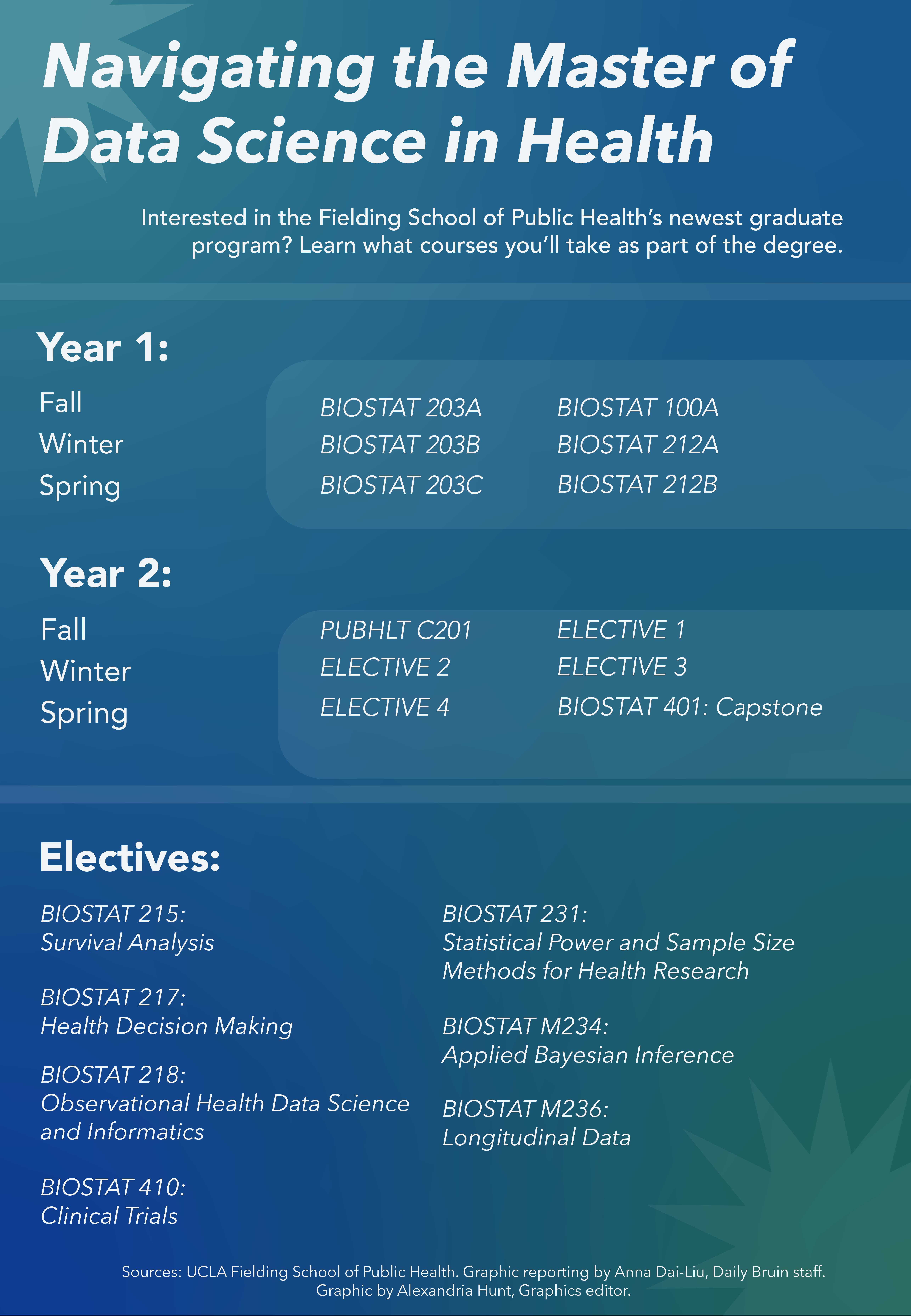
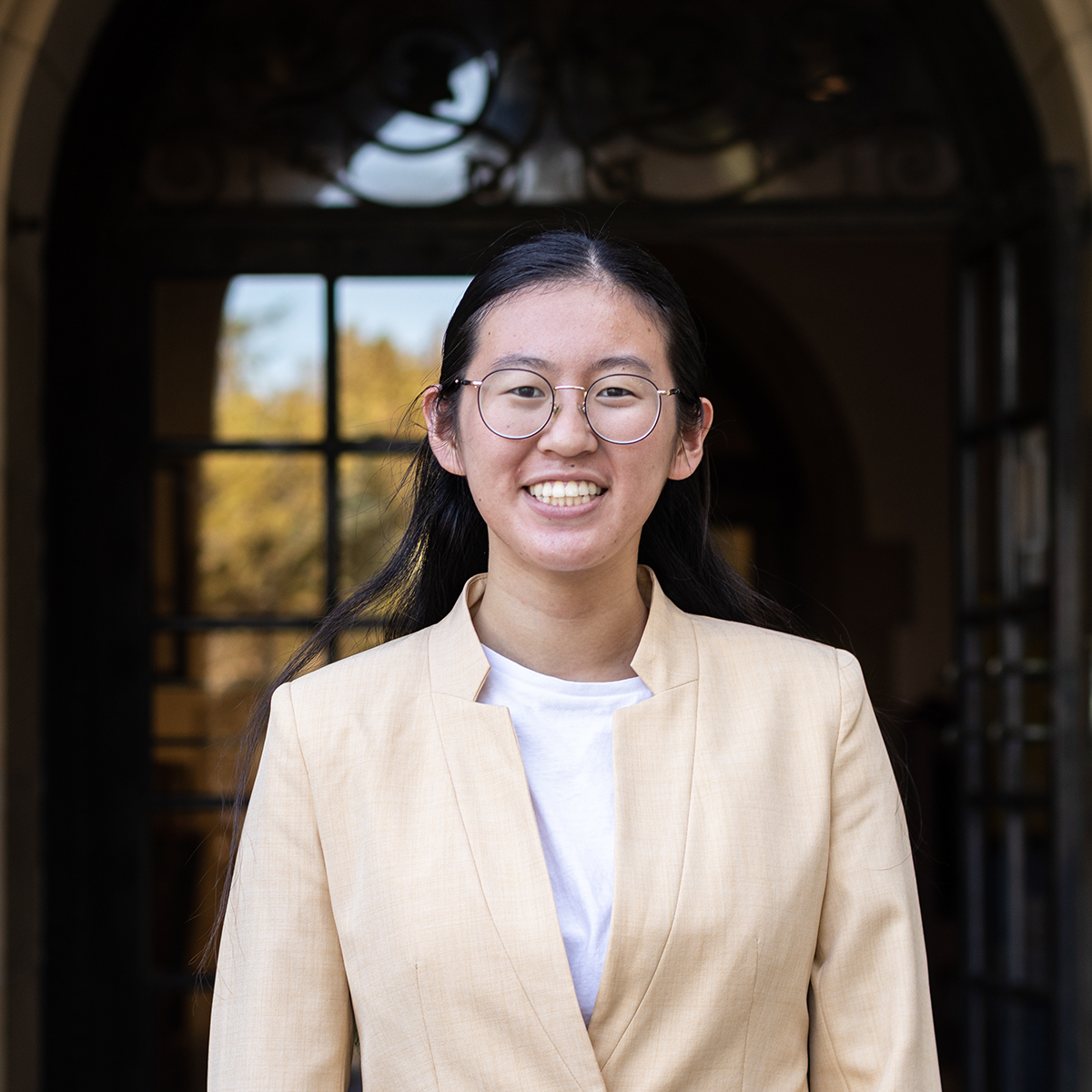
By Anna Dai-Liu
May 31, 2023 11:48 p.m.
This post was updated June 1 at 4:04 p.m..
The UCLA Fielding School of Public Health announced it will offer a new master’s degree in data science in health.
The degree program, launched by the school’s biostatistics department, aims to address challenges in data science specific to health-related data, including the design and analysis of clinical trials, said Sudipto Banerjee, chair of the Department of Biostatistics. Hua Zhou, the program’s director, said courses will have both in-person and online components, allowing people employed full-time to enroll in the program along with recent graduates.
Ron Brookmeyer, dean of the School of Public Health, said in an emailed statement that with the increased prominence of electronic health data, he believes it is important to provide students and professionals with the skills to work with it.
“I am thrilled with this new program,” said Brookmeyer, who is also a distinguished professor of biostatistics, in the statement. “I am confident it will play an important role in training a much needed workforce at the intersection of data science and health.”
Though the program was launched this year, Banerjee said it has been in the works since 2015, when the field of data science was gaining traction.
“With the advent of computing technologies, massive databases and so on, ‘Big Data’ – as this era is often referred to as – has really literally started blossoming,” he said.
Zhou, who is also a professor of biostatistics, said many applicants to the biostatistics and public health programs at UCLA have expressed interest in working in fields including the pharmaceutical industry or government, which require a more practical skill set than what existing programs offered. For example, Zhou said the current master’s in applied statistics and data science program focuses heavily on mathematics, but he wanted to create a program with a coding-based approach, similar to the data science concentration in the master of engineering program.
Zhou said the program was developed by a faculty committee created in the summer of 2020 which collaborated with industry stakeholders and clinicians at the David Geffen School of Medicine to identify the skills needed for a data scientist to succeed in the health field.
Another way the school tried to differentiate its program from existing ones was to incorporate an in-person component, he said. He added that 60% of course time in the master of data science in health program will be spent in person, whereas the master of science in engineering program is fully remote and asynchronous.
“Many students still appreciate the interaction between students and the professors in our programs – therefore, our program is kind of in the middle ground,” he said. “We are trying to achieve the balance between making the program as accessible as possible to working professionals, but also we emphasize the amount (of) interaction and a hands-on learning experience.”
Banerjee said one of the major challenges in designing the program was making sure it would appeal to a broad range of people. He added that the program’s entry requirements are minimal – prospective students are only expected to have taken high school-level algebra, not the advanced calculus or linear algebra required of a doctoral student in biostatistics.
The degree includes a series of preparatory biostatistics and statistics courses, after which students take at least four elective courses. Zhou said these electives include new courses specifically designed to address challenges in health data science, such as analysis of electronic health records and health-related decision making.
To conclude the program, students will participate in a capstone project during which they will work in teams with industry companies to solve real-world problems, he said, adding that this will allow students to apply their knowledge in a practical manner and also form connections for their future careers.
According to the program’s website, the first students will be able to enroll this fall, with applications opening in June. Zhou said students who graduate from the program will be equipped for a variety of careers, including biostatistics and machine learning analysis.
“I expect lots of students will become data scientists after getting (their) degree, but also lots of other possible positions,” he said. “I’d say in terms of career perspective … I think it’s very bright.”



